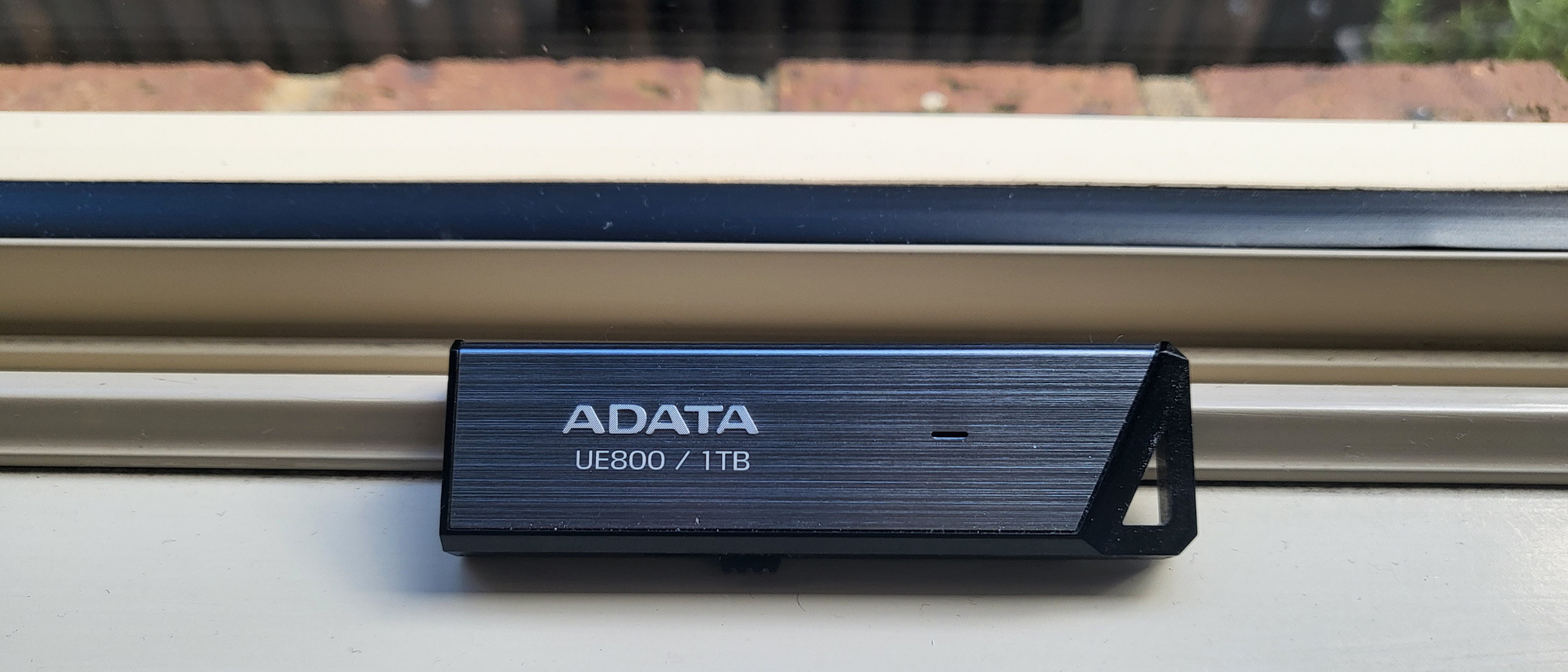TechRadar Verdict
Adata delivers a perfect removable high-performance portable storage product. The Elite UE800 is everything I could ask for; it is more affordable than the competition (if purchased via Amazon Prime), has a long warranty, is as fast as it gets, has a capless design and is a reputable brand. No surprise then that I have no problem presenting it with an Editor’s choice.
Pros
- +
Lanyard hole
- +
Capless design
- +
Superb performance
- +
5-year warranty
Cons
- -
No IP rating
- -
No encryption
- -
No bundled software
Why you can trust TechRadar
Adata Elite UE800: One-minute review
Adata strikes again with the UE800, a USB flash drive that delivers what was promised: a stunning overall performance wrapped in a solid package that ticks all boxes and is barely bigger than an average adult thumb.
Having reviewed the best USB flash drives out there, it's fair to say manufacturers can’t really go wrong when it comes to getting the basics right; after all, USB sticks - as they are colloquially known - have been around for more than two decades and the UE800 fits that template to a tee. A rectangular body with a push-out Type-C connector (which means it can be used by a smartphone or tablet with OTG enabled), a capless design (so no caps to be lost), a brush-metal finish with an activity light and a lanyard hole (although I wouldn’t recommend dangling your storage device at the end of a lanyard).
There’s no software (data recovery software, encryption or a backup application), cables or other accessories and its speeds (up to 1.05GB/s, delivered thanks to USB 3.2 Gen 2) should be sufficient for most use cases until USB 4 becomes mainstream. As for the price, you can get it for as little as $69.99 from Amazon, which is far cheaper than the competition. You need to have Prime as you’d otherwise pay $99.99; speaking of which, I would love Amazon to offer a 3-year data and photo protection plan for the UE800. After all, it is available for just under $6 (about £4.70, AU$9) for the Kingston DataTraveler Max and can be a real sanity saver.
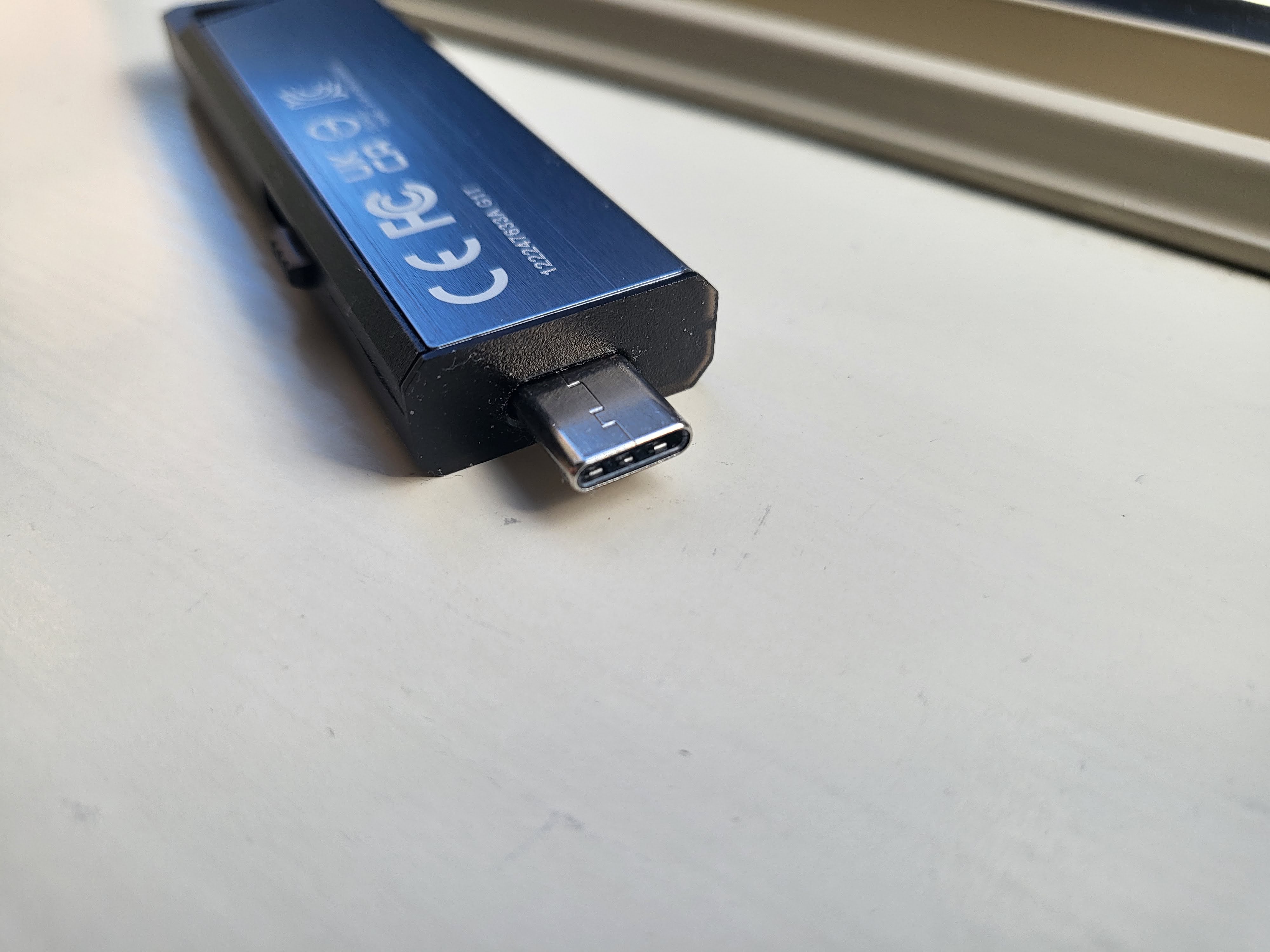
Adata Elite UE800: Pricing and availability
- How much does it cost at the time of writing? $69.99 on Amazon (about £55, AU$106)
- When is it available? It is available now
- Where can you get it? It is available in the the US and other countries
The AELI-UE800-1T-CSG as it is known is available in 512GB and 2TB capacities. The latter selling for a better-than-expected $129.99 (about £102, AU$197); personally I’d rather get that one as it delivers enhanced value-for-money.
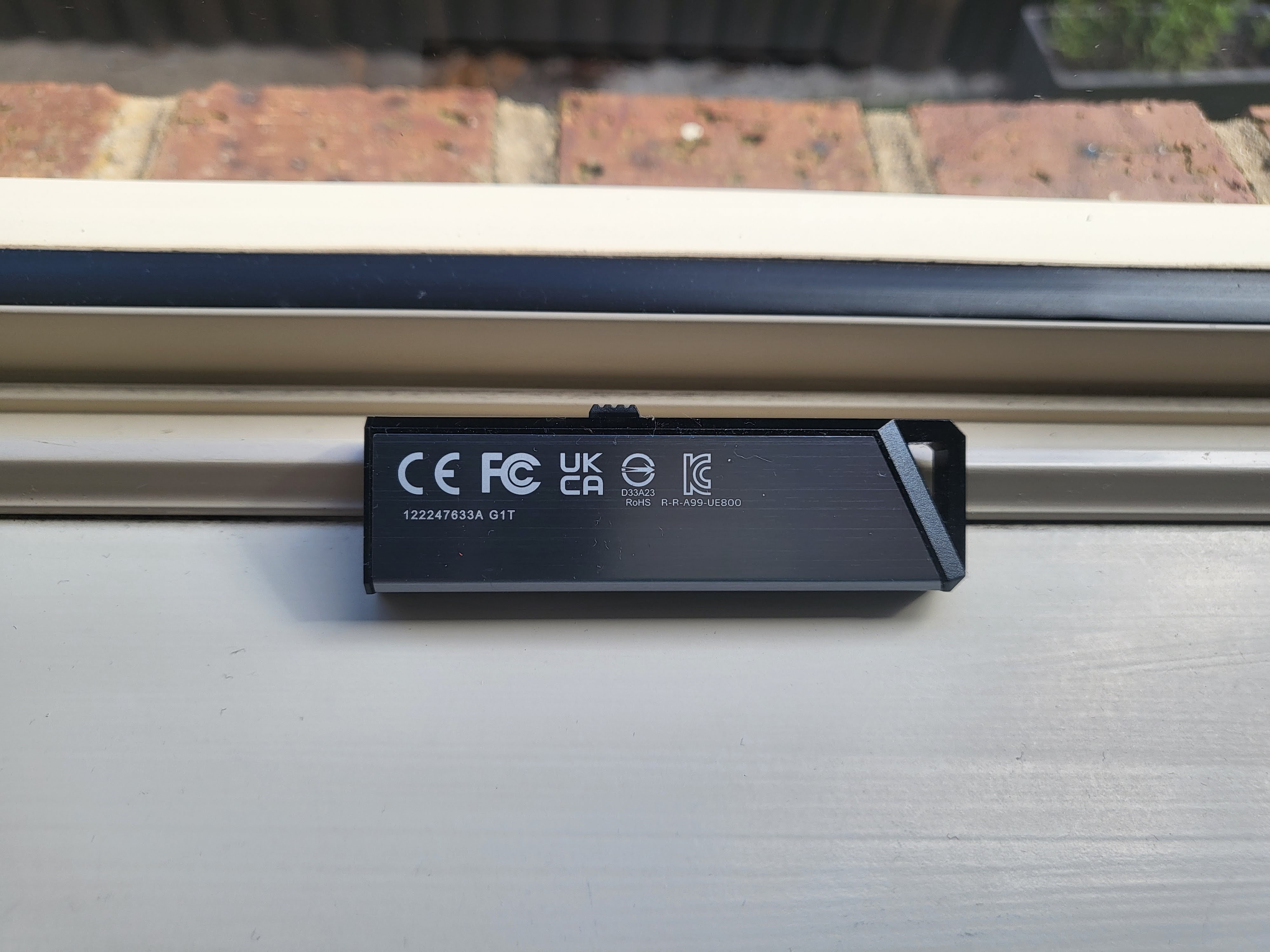
Adata UE800: Benchmark
In a nutshell, the Adata Elite UE800 delivered on the promised 1,050/1,000 MBps speeds, coming close to 1.1GBps on CDM write and inching into 1GBps territory on write, which is superb. Yes, CrystalDiskMark tends to be overtly generous as it is a synthetic benchmark but overall, it was a good showing. The drive became warm on extensive use which was expected.
| Row 0 - Cell 0 | Read (MBps) | Write (MBps) |
| AJA | 940 | 859 |
| CrystalDiskMark | 1074 | 1001 |
| ATTO | 1024 | 954 |
| AS SSD | 954 | 847 |
| Real Life | 459 | 459 |
Adata UE800: Specs
| Row 0 - Cell 0 | Row 0 - Cell 1 |
| Capacities available | 512GB, 1TB, 2TB |
| Size | 73 x 21.3 x 8.9mm |
| Weight | 13g |
| Enclosure material | Metal |
| Connector | USB-C |
| Technology | USB 3.2 Gen 2 |
| Warranty (in years) | 5 |
| Rated R/W speeds (MBps) | 1050/1000 |
| Software bundle | No |
Should I buy the Adata UE800?
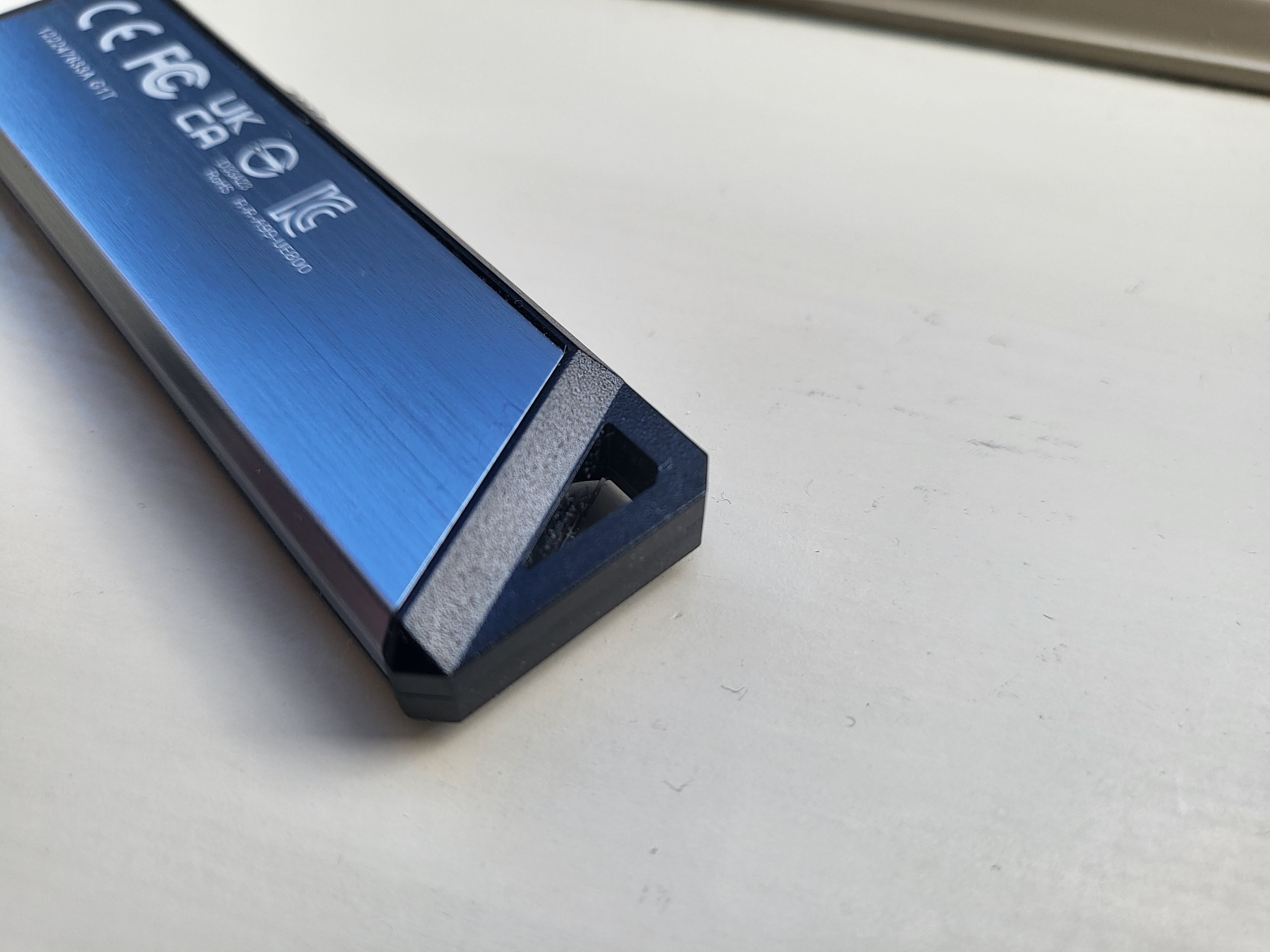
Buy it if...
You want a fantastic performer at a solid price
The UE800 is as good as it gets; it is affordable, performs superbly, is well designed, has a relatively long warranty and a capacity of up to 2TB, enough to store about 50 full size Blu-ray movies (or more than one million 1.44MB floppy disks).
A type-C storage device that can connect to your smartphone or tablet
Because it is a native USB Type-C drive, it can plug in a smartphone or tablet and act as an pseudo external SSD.
Don't buy it...
You want absolute security
The UE800 doesn’t come with any IP-rating. Adata has no aspirations to sell this as a rugged data storage device and it is a shame. To be honest, adding a cap to the UE800 would have messed up with the whole push out mechanism. That said, I am not sure whether the plastic trigger would survive a drop on a hard concrete surface.
…. or protection
The drive doesn’t come with any encryption capabilities, enabled either using biometrics (fingerprint) or through other means (e.g. a physical keypad or software-based). You lose it and that’s it, unless you have encrypted your data at rest. Bear that in mind if you plan to use this drive for business purposes.
Adata UE800 alternatives
| Row 0 - Cell 0 | Kingston DataTraveler Max | Silicon Power MS70 | SSK Extreme | Oyen Digital Dash Pro |
| Capacity | 1TB | 1TB | 1TB | 1TB |
| Price | $96.70 | $74.99 | $480 | $99 |
| Speed (MB/s) | 1,000 | 1,050 | 1,000 | 1,050 |
| IP rated | No | No | No | No |
| Warranty (yrs) | 5 | 5 | 3 | 3 |
There are scores of rugged hard drives and portable SSDs that are IP-rated or have been put through the MIL-STD-810G. Yet I couldn’t find a single IP-rated USB flash drive out there. There’s no real reason why that is the case other than the perceived lack of demand. Drives like the UE800 are intrinsically less sturdy than the likes of the MS70 because of moving parts. And yet, even the latter is not deemed good enough to carry any IP rating. Let’s hope that this will change in a near future.
Let’s start with the Silicon Power MS70. Alastair Jennings tested the 2TB version giving it a 4.5 stars; his biggest bugbear was the presence of USB Type-A, which means that you can’t use it with a smartphone as it requires a Type-C adaptor.
Plus it is chunkier because it is more robustly built, probably a preferred solution should you want a more resilient portable storage device.
Sign up to the TechRadar Pro newsletter to get all the top news, opinion, features and guidance your business needs to succeed!
The DataTraveler Max by Kingston is the only one that comes from what I’d call a Tier-1 vendor, one that is almost a household name (a la Seagate or Sandisk).
How I tested the Adata UE800
After having formatted the Adata UE800 to exFAT, I test it the same way I test other storage components (external HDD, microSD cards etc). I use the latest versions of CrystalDiskMark, Atto, AS SSD and AJA benchmarks, noting the best scores achieved in each. They are all free and can be downloaded by anyone. I then transfer a folder of files, roughly 10GB in size, to get a rough idea of real life performance.
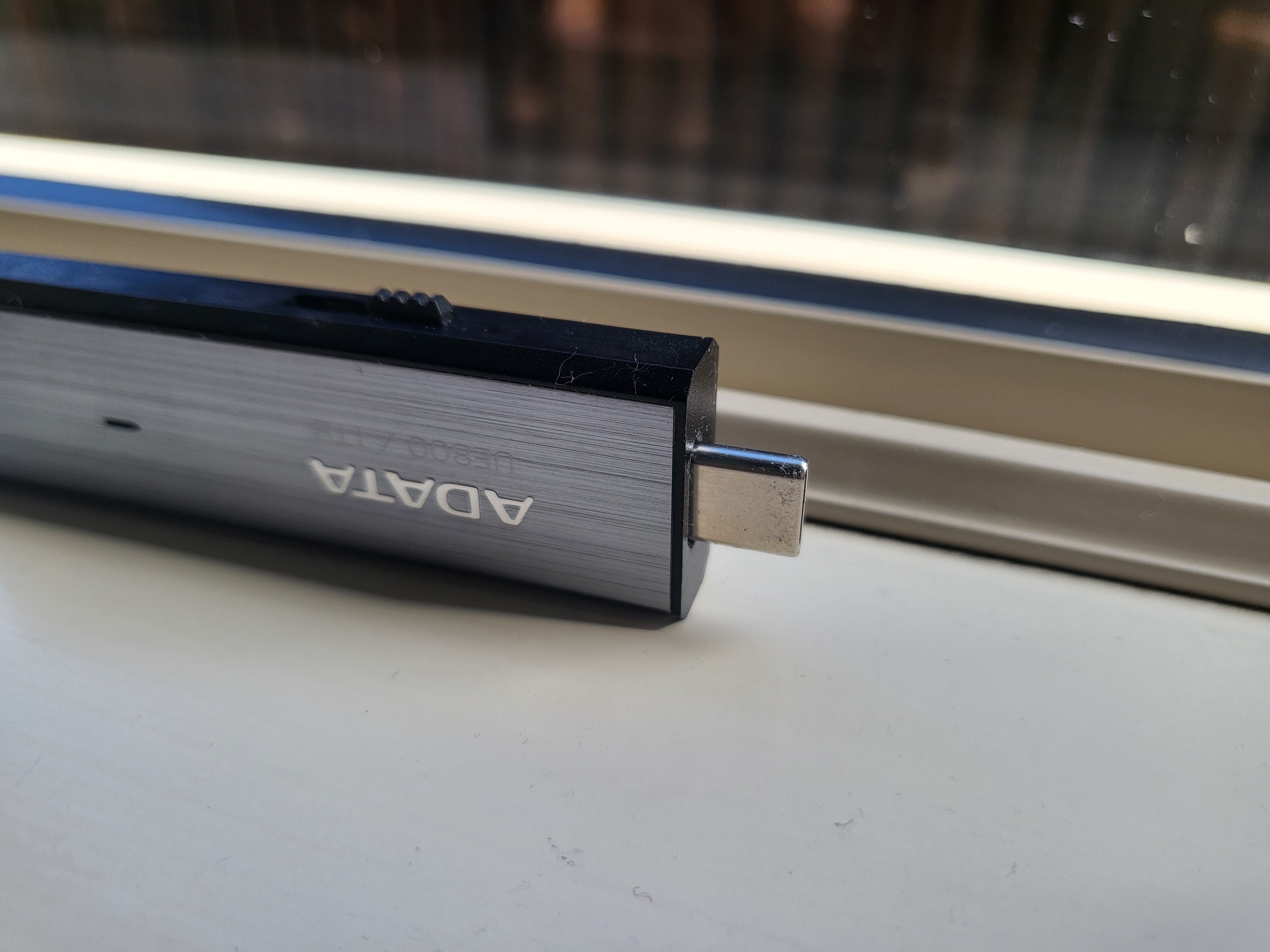

Désiré has been musing and writing about technology during a career spanning four decades. He dabbled in website builders and web hosting when DHTML and frames were in vogue and started narrating about the impact of technology on society just before the start of the Y2K hysteria at the turn of the last millennium.
